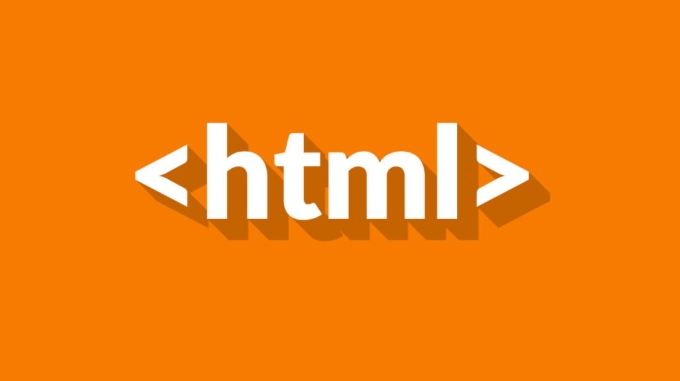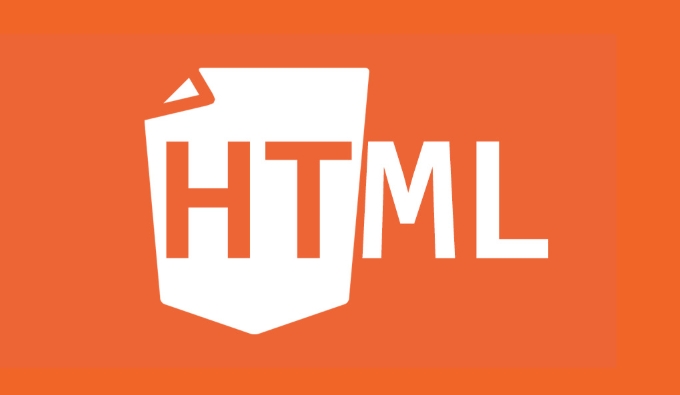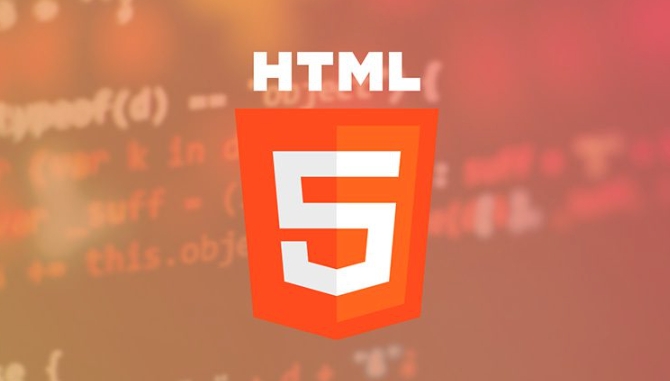Writing Effective Alt Text for Images in HTML for Accessibility
Jul 06, 2025 am 12:42 AMAlt Text is an attribute used in HTML to describe the content of an image. Its core function is to allow people who cannot see the image to understand its meaning. There are several principles to follow when writing Alt Text: 1. Be concise and clear, convey core information; 2. Describe the content rather than the form; 3. Adjust the description according to the context; 4. Avoid duplication and redundancy. For specific types of pictures such as charts, pictures in links, complex images, etc., Alt Text should be more specific or adjusted according to the purpose. Common errors include writing too general, replacing descriptions with file names, stacking keywords, and ignoring decorative images that should leave blank Alt attributes.

Writing Alt Text for HTML pictures is the most basic and critical part of web accessibility. Many people know to add the alt attribute, but not many people actually write it effectively. A good alt description allows visually impaired users to understand the image content and also provides useful information when the image fails to load.

What is Alt Text?
Alt text is an attribute of the <img src="/static/imghw/default1.png" data-src="https://img.php.cn/upload/article/000/000/000/175173376629497.jpeg" class="lazy" alt="Writing Effective Alt Text for Images in HTML for Accessibility" > tag in HTML that describes the content or function of the picture. Its core function is to allow people who cannot see the picture to understand its meaning .

for example:
<img src="/static/imghw/default1.png" data-src="dog.jpg" class="lazy" alt="A yellow labrador retriever running on the grass">
In the example above, the alt text clearly describes the image content. If the image cannot be displayed, or the user uses a screen reader, he or she can obtain key information through this text.

Not all images require detailed descriptions. Some pictures are only decorative, in which case you can leave blank alt attribute:
<img src="/static/imghw/default1.png" data-src="decoration.png" class="lazy" alt="">
How to write a valid Alt Text?
There are no fixed formulas for writing alt text, but there are several general principles that can help you write a more practical description:
- Concise and clear : It doesn't take too long, as long as it can convey the core information of the picture.
- Describe content rather than form : for example, don’t say “red button in the picture”, but just say “submit button”.
- Adjust according to the context : The same image may be placed on different pages and different alt descriptions may be required.
- Avoid duplication and redundancy : For example, if there is already text description next to the picture, you don’t need to repeat the alt again.
For example, if you have a product picture, it appears on the product details page:
<img src="/static/imghw/default1.png" data-src="shoes.jpg" class="lazy" alt="Black sneakers with white sole and blue stripes">
This description is more helpful than just writing "shoes".
What situations should be paid special attention to?
Some image types require more alt and need to be more careful when processing.
1. Charts and data visualization
This type of picture has a lot of information, and alt needs to briefly summarize the content of the chart, and sometimes it also needs to provide more details with the hidden text area.
For example:
<img src="/static/imghw/default1.png" data-src="chart.png" class="lazy" alt="The bar chart shows sales in the four quarters of 2023 were 1.2 million, 1.5 million, 1.7 million and 2 million respectively">
2. Pictures in the link
If the image itself is a link, the alt text should indicate the target after clicking, rather than just describing the image content.
For example, a "Return to Homepage" icon:
<a href="/"><img src="/static/imghw/default1.png" data-src="home-icon.png" class="lazy" alt="Back to Home"></a>
3. Complex images or works of art
If it is an artistic picture used for display, alt can appropriately add descriptive language to emphasize visual elements and atmosphere.
For example:
<img src="/static/imghw/default1.png" data-src="sunset.jpg" class="lazy" alt="The sunset is setting, orange and purple intertwined on the sea">
Some of the easiest mistakes to make
Many people will fall into some common pitfalls when writing alt text. The following should be paid special attention to:
- ? The writing is too general, such as "picture", "photo", "this thing";
- ? Treat the file name as alt, such as "IMG_1234.jpg";
- ? Using alt to pile keywords for SEO will affect the barrier-free experience;
- ? Forget decorative pictures, you also need to clear the alt, otherwise you will be read out and disturb the user.
It is actually not difficult to solve these problems, just remember one thing: alt is for people who cannot see the pictures. Think from their perspective and you will know how to write.
Basically that's it. Writing alt text is not complicated, but it is indeed easy to be ignored. Taking some time to write carefully will help the user experience much more than you think.
The above is the detailed content of Writing Effective Alt Text for Images in HTML for Accessibility. For more information, please follow other related articles on the PHP Chinese website!

Hot AI Tools

Undress AI Tool
Undress images for free

Undresser.AI Undress
AI-powered app for creating realistic nude photos

AI Clothes Remover
Online AI tool for removing clothes from photos.

Clothoff.io
AI clothes remover

Video Face Swap
Swap faces in any video effortlessly with our completely free AI face swap tool!

Hot Article

Hot Tools

Notepad++7.3.1
Easy-to-use and free code editor

SublimeText3 Chinese version
Chinese version, very easy to use

Zend Studio 13.0.1
Powerful PHP integrated development environment

Dreamweaver CS6
Visual web development tools

SublimeText3 Mac version
God-level code editing software (SublimeText3)

Hot Topics
 Applying Semantic Structure with article, section, and aside in HTML
Jul 05, 2025 am 02:03 AM
Applying Semantic Structure with article, section, and aside in HTML
Jul 05, 2025 am 02:03 AM
The rational use of semantic tags in HTML can improve page structure clarity, accessibility and SEO effects. 1. Used for independent content blocks, such as blog posts or comments, it must be self-contained; 2. Used for classification related content, usually including titles, and is suitable for different modules of the page; 3. Used for auxiliary information related to the main content but not core, such as sidebar recommendations or author profiles. In actual development, labels should be combined and other, avoid excessive nesting, keep the structure simple, and verify the rationality of the structure through developer tools.
 How to group options within a select dropdown using html?
Jul 04, 2025 am 03:16 AM
How to group options within a select dropdown using html?
Jul 04, 2025 am 03:16 AM
Use tags in HTML to group options in the drop-down menu. The specific method is to wrap a group of elements and define the group name through the label attribute, such as: 1. Contains options such as apples, bananas, oranges, etc.; 2. Contains options such as carrots, broccoli, etc.; 3. Each is an independent group, and the options within the group are automatically indented. Notes include: ① No nesting is supported; ② The entire group can be disabled through the disabled attribute; ③ The style is restricted and needs to be beautified in combination with CSS or third-party libraries; plug-ins such as Select2 can be used to enhance functions.
 Implementing Clickable Buttons Using the HTML button Element
Jul 07, 2025 am 02:31 AM
Implementing Clickable Buttons Using the HTML button Element
Jul 07, 2025 am 02:31 AM
To use HTML button elements to achieve clickable buttons, you must first master its basic usage and common precautions. 1. Create buttons with tags and define behaviors through type attributes (such as button, submit, reset), which is submitted by default; 2. Add interactive functions through JavaScript, which can be written inline or bind event listeners through ID to improve maintenance; 3. Use CSS to customize styles, including background color, border, rounded corners and hover/active status effects to enhance user experience; 4. Pay attention to common problems: make sure that the disabled attribute is not enabled, JS events are correctly bound, layout occlusion, and use the help of developer tools to troubleshoot exceptions. Master this
 Configuring Document Metadata Within the HTML head Element
Jul 09, 2025 am 02:30 AM
Configuring Document Metadata Within the HTML head Element
Jul 09, 2025 am 02:30 AM
Metadata in HTMLhead is crucial for SEO, social sharing, and browser behavior. 1. Set the page title and description, use and keep it concise and unique; 2. Add OpenGraph and Twitter card information to optimize social sharing effects, pay attention to the image size and use debugging tools to test; 3. Define the character set and viewport settings to ensure multi-language support is adapted to the mobile terminal; 4. Optional tags such as author copyright, robots control and canonical prevent duplicate content should also be configured reasonably.
 How to associate captions with images or media using the html figure and figcaption elements?
Jul 07, 2025 am 02:30 AM
How to associate captions with images or media using the html figure and figcaption elements?
Jul 07, 2025 am 02:30 AM
Using HTML sums allows for intuitive and semantic clarity to add caption text to images or media. 1. Used to wrap independent media content, such as pictures, videos or code blocks; 2. It is placed as its explanatory text, and can be located above or below the media; 3. They not only improve the clarity of the page structure, but also enhance accessibility and SEO effect; 4. When using it, you should pay attention to avoid abuse, and apply to content that needs to be emphasized and accompanied by description, rather than ordinary decorative pictures; 5. The alt attribute that cannot be ignored, which is different from figcaption; 6. The figcaption is flexible and can be placed at the top or bottom of the figure as needed. Using these two tags correctly helps to build semantic and easy to understand web content.
 Best HTML tutorial for beginners in 2025
Jul 08, 2025 am 12:25 AM
Best HTML tutorial for beginners in 2025
Jul 08, 2025 am 12:25 AM
TolearnHTMLin2025,chooseatutorialthatbalanceshands-onpracticewithmodernstandardsandintegratesCSSandJavaScriptbasics.1.Prioritizehands-onlearningwithstep-by-stepprojectslikebuildingapersonalprofileorbloglayout.2.EnsureitcoversmodernHTMLelementssuchas,
 How to embed content from another site using the html iframe tag?
Jul 04, 2025 am 03:17 AM
How to embed content from another site using the html iframe tag?
Jul 04, 2025 am 03:17 AM
Use tags to embed other website content into your own web page. The basic syntax is:, you can add width, height, and style="border:none;" to control the appearance; in order to achieve responsive layout, you can set the size through percentage or use containers to combine padding and absolute positioning to maintain the aspect ratio, while paying attention to cross-domain restrictions, loading performance, SEO impact, and security policies. Common uses include embedding maps, third-party forms, social media content and internal system integration.
 HTML for email templates tutorial
Jul 10, 2025 pm 02:01 PM
HTML for email templates tutorial
Jul 10, 2025 pm 02:01 PM
How to make HTML mail templates with good compatibility? First, you need to build a structure with tables to avoid using div flex or grid layout; secondly, all styles must be inlined and cannot rely on external CSS; then the picture should be added with alt description and use a public URL, and the buttons should be simulated with a table or td with background color; finally, you must test and adjust the details on multiple clients.






